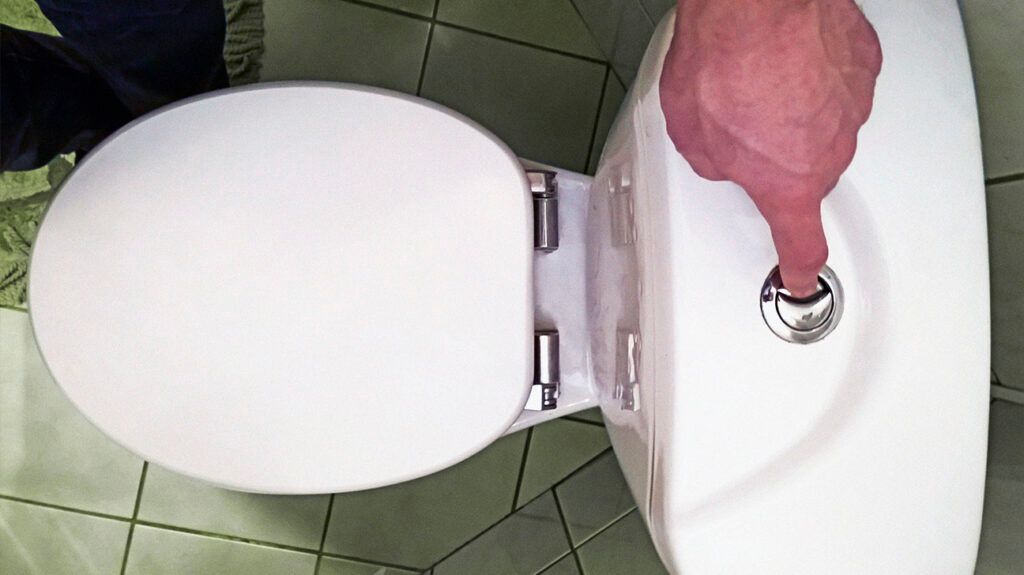Many people living with pancreatic cancer experience jaundice due to blockages in the common bile duct. Dark-colored urine may be an early sign a person has jaundice.
Just because a person has dark-colored urine or jaundice does not mean they have pancreatic cancer. Proper evaluation by a doctor can help determine the cause of dark-colored urine.
This article discusses how pancreatic cancer may affect the color of an individual’s urine and how to manage this and other jaundice symptoms when living with this condition.

Not every person who has pancreatic cancer will have jaundice, and some may not notice any changes in their urine color at all.
If a person with pancreatic cancer also has jaundice, their urine may become darker in color. This may start gradually, with urine becoming only slightly darker than its typical color. Over time, the urine may become a brown color.
Learn more about urine color changes.
Dark urine is a sign of jaundice, a condition caused by excess bilirubin — a yellowish pigment the body produces. This can happen for many reasons, and in
Around
If pancreatic cancer has spread to the liver, this can also cause jaundice. The liver houses a network of small bile ducts within it, and a tumor in the liver can block any of these ducts.
A blockage in the common bile duct can lead to a buildup of bilirubin, as it can no longer move to the intestines or exit the body. This buildup causes the symptoms of jaundice, including dark-colored urine.
Other signs of jaundice include:
- yellowing of the skin and whites of the eyes
- light-colored or gray or greasy stools
- itchy skin
Learn more about jaundice.
Doctors treat jaundice by managing the underlying cause.
When
This may only be an option in people with cases where a doctor cannot surgically remove the cancer or when surgery is delayed. A stent can relieve the symptoms of jaundice within a few weeks and make an individual more comfortable.
Doctors can prescribe certain medications to manage itching skin caused by jaundice. Some at-home measures can also help manage it, including:
- showering or bathing in tepid water
- keeping skin moisturized
- avoiding soaps and deodorants that dry the skin
- bathing with oatmeal
Doctors often do not know if someone has pancreatic cancer until the disease has already spread to other parts of the body. This is because the condition is difficult to detect in its early stages.
In around
Signs that pancreatic cancer has spread to the liver or within the abdomen include:
- jaundice
- pain in the right side of the abdomen
- loss of appetite or unintentional weight loss
- nausea
- swelling in the abdomen
Signs that pancreatic cancer has spread to the lungs include:
- persistent coughing
- shortness of breath
- frequent chest infections
- coughing up blood
Signs that pancreatic cancer has spread to the bones include:
- continuous pain or aching in the bone
- back pain that does not improve with rest
- bone weakness or bones breaking easily
- dehydration
- confusion
- vomiting
- constipation
- pain in the abdomen
- anemia
- excessive bruising or bleeding
Below are some common questions about pancreatic cancer.
What color is pee with pancreatic cancer?
Jaundice due to pancreatic cancer can cause urine to be darker than usual, possibly becoming a dark brown color.
Can urine detect pancreatic cancer?
While dark urine is a possible sign of jaundice, which may sometimes indicate pancreatic cancer, there are many other reasons a person may have dark urine.
What is the number one symptom of pancreatic cancer?
Pancreatic cancer symptoms can vary from person to person. However, most individuals experience weight loss, abdominal pain, and jaundice.
Jaundice is a common symptom of pancreatic cancer, often caused by an obstruction in the common bile duct and a buildup of bilirubin in the body.
Dark-colored or brown urine may appear in people with a large buildup of bilirubin, which could indicate they have jaundice. However, there are many other reasons a person may have jaundice or dark urine.
Doctors may be able to treat jaundice caused by pancreatic cancer by surgically removing the cancer that is obstructing the bile duct. In people with cases where this is not possible, a doctor may use a stent to open the duct, allowing the bilirubin to move normally through the body.
